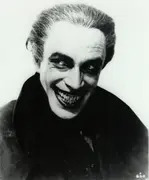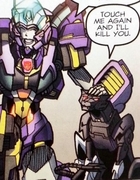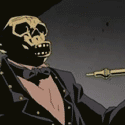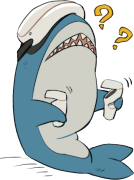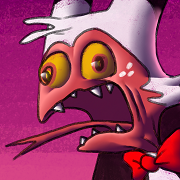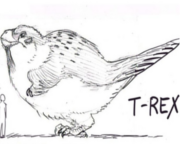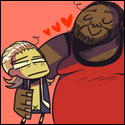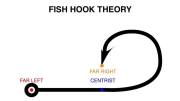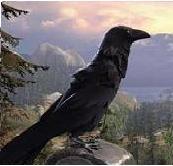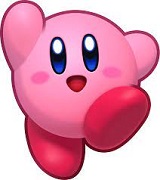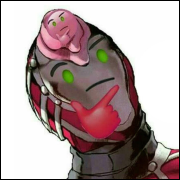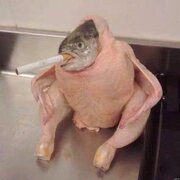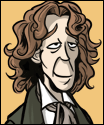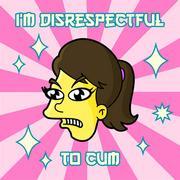|
Apparently, Star Trek TAS was shopped around to a variety of different animation studios, and Filmation was literally the only one that didn't want to give the Enterprise crew 'cute alien sidekicks'. Their style arguably works well for an adaptation/continuation of a live action series too, basically they were the only ones who'd try to take the assignment halfway seriously, and it really works.The Last Call posted:Know what deservered better? They did apparently actually fight to have a nonwhite First Nations main character, which is far too rare of a thing even today, let along in the 80s.
|
|
|
|

|
| # ? May 26, 2024 02:57 |
|
There was plenty of that kind of stuff at the time. I remember "Rubik The Amazing Cube" had a POV family who was Hispanic. Sesame Street famously was always very multiethnic and I think it (and its attendant PBS type animation) was my main view into what inner-city brownstone life was like. I think it didn't read as "woke" to certain people until it started to work
|
|
|
|
|
Ghost Leviathan posted:
Did they? It felt so natural a part of the show that I would never have guessed. Felt like it was always part of the plan. Unfortunately, it is rare then and now.
|
|
|
|
Data Graham posted:There was plenty of that kind of stuff at the time. I remember "Rubik The Amazing Cube" had a POV family who was Hispanic. Sesame Street famously was always very multiethnic and I think it (and its attendant PBS type animation) was my main view into what inner-city brownstone life was like. I feel like a lot of the late-era (late 70s/early 80s) Hanna-Barbera teens-solving-mysteries shows always had a black guy, usually in the brainiac nerd role. The one with Gary Coleman as an angel definitely did. I feel like maybe there was a Hispanic character sometimes as well.
|
|
|
|
I guess that's something that Hanna-Barbara didn't have to worry about with it's talking animal shows, although they did have an issue with lacking female characters. I'm not sure if there was any diversity among the underlying voice actors aside from Hong Kong Phooey being voiced by Scatman Crothers. I AM GRANDO posted:If anything, it's too gentle. Starfleet is consistently presented as noble and capable of rising to any challenge, at least in the ones I've seen. It's like the kind of comedy show that the federation would produce in-universe. Well that's sort of been the implied undercurrent of most of the rest of the franchise, that Starfleet and the Federation have done their best to be able to handle any issues thrown their way, and actually there isn't some kind of hideous dystopia right off screen undermining everything about the future like the majority of sci fi has to keep things interesting. TNG in its early seasons really tried the hardest with thte Federation utopia stuff, and while the franchise backed away from trying so hard at it, the idea still permeates the franchise. At the very least, the further you get from big command level decisions on big ships, the less likely you are to run into anything really hosed-up, but sometimes people are just kinda jerks even if there's not a whole terrible world behind it.
|
|
|
|
I could be just talking out my rear end here, shooting from the hip and not from any kind of historian's viewpoint, but I have this weird feeling that the 70s/80s were a time when the animation and kids' programming industry was making a genuine attempt to be inclusive and even-handed; I seem to remember even the books I pored over at the Scholastic fairs were very multiethnic and proactively egalitarian. Even excessively sunny about it too, not unlike that one Kelly comic. But then as it moved into the 90s it kind of gave way to the kind of Captain Planet/BK Kids Club tokenism that we relentlessly make fun of today, where yeah there's always a black guy and an Asian woman and a Latina and a guy in a wheelchair, but they're never the leader whose name is Chip or Biff or Blake. It's like tokenism became industrialized and ritualized which made it almost worse than if they'd never bothered in the first place. I was watching Pulp Fiction over the weekend and it's kind of a jarring time capsuleónot jarring in the way it was at the time, with all the n-words shoved right in your face like the close-range gunshots, but from a modern perspective it's jarring because it almost feels like in its 90s milieu it was mocking the very concept of being worried about racism. Like in 1994 we were all so keen to congratulate ourselves for having beaten racism that we could feel free to be South Parkishly over-the-top and indulge in slurs because they have no power anymore and they just sound funny coming out of a dorky white guy in his kitchen and aimed at an erudite and literate bad motherfucker in his underwear. But in 2024, those slurs are all way more electrically charged than they were in 1994 or 2000 somehow; there's been a fresh reawakening of awareness that nothing has been solved and shoving it all under the carpet so we can laugh at it like a relic of a bygone era doesn't do anything but embolden real live fascists who never went away. Again this is just the non-ironic
|
|
|
|
|
The Last Call posted:Did they? It felt so natural a part of the show that I would never have guessed. Felt like it was always part of the plan. Oh yes. BraveStarr being Native American had to be pushed through. Also puckering buttholes were any hints of romance between him and the white lady Judge JB. It REALLY shows that they didn't have a single Native American person on staff in the writing, and a lot of it will at the least make most nervously tug their collar, but you gotta start somewhere. Trivia: Has the only War on Drugs episode I can think of where a kid dies from it.
|
|
|
|
Data Graham posted:I could be just talking out my rear end here, shooting from the hip and not from any kind of historian's viewpoint, but I have this weird feeling that the 70s/80s were a time when the animation and kids' programming industry was making a genuine attempt to be inclusive and even-handed; I seem to remember even the books I pored over at the Scholastic fairs were very multiethnic and proactively egalitarian. Even excessively sunny about it too, not unlike that one Kelly comic. But then as it moved into the 90s it kind of gave way to the kind of Captain Planet/BK Kids Club tokenism that we relentlessly make fun of today, where yeah there's always a black guy and an Asian woman and a Latina and a guy in a wheelchair, but they're never the leader whose name is Chip or Biff or Blake. The Captain Planet lot were led by a black guy, and they reported to black woman, so I dunno if that example really works.
|
|
|
|
Dawgstar posted:Oh yes. BraveStarr being Native American had to be pushed through. Also puckering buttholes were any hints of romance between him and the white lady Judge JB. It REALLY shows that they didn't have a single Native American person on staff in the writing, and a lot of it will at the least make most nervously tug their collar, but you gotta start somewhere. Did Bravestarr shoot him?
|
|
|
|
Data Graham posted:I could be just talking out my rear end here, shooting from the hip and not from any kind of historian's viewpoint, but I have this weird feeling that the 70s/80s were a time when the animation and kids' programming industry was making a genuine attempt to be inclusive and even-handed; I seem to remember even the books I pored over at the Scholastic fairs were very multiethnic and proactively egalitarian. Even excessively sunny about it too, not unlike that one Kelly comic. But then as it moved into the 90s it kind of gave way to the kind of Captain Planet/BK Kids Club tokenism that we relentlessly make fun of today, where yeah there's always a black guy and an Asian woman and a Latina and a guy in a wheelchair, but they're never the leader whose name is Chip or Biff or Blake. It's like tokenism became industrialized and ritualized which made it almost worse than if they'd never bothered in the first place. The end of history ended up not being true and now that long post-1989 dreamworld looks deranged and unreal. While everyone was asleep and the third-way liberals were hollowing out the foundations, the fascists were working their way into every crack and gap to stoke white resentment. Thatís not really a novel take at this point, but itís the dissonance I feel watching x-files or the fmv at the end of Metal Gear Solid 2.
|
|
|
Open Source Idiom posted:The Captain Planet lot were led by a black guy, and they reported to black woman, so I dunno if that example really works. Fair, I never actually watched it (it came after my time)
|
|
|
|
|
Captain Planet was good, it's one of the few children cartoons that accurately depicts the billionaire class.
|
|
|
|
I think in general pop culture kinda bounced a bit away from some of the bigger ideas about diversity that inspired the diversity of 80s cartoons, but pop culture was already on that path in the 80s, and it'd take a bit for that to come more to prominence. I think 90s cartoons probably had more overall diversity than the 80s, but it was just no longer very notable, so less excitement over it. Whether the diversity had real depth or was just tokenism is more complicated than I can really say, but I think there was growing complexity of some cartoons so the kind of big team that diversity could be crammed into would pale in comparison to what like the Batman animated series was doing. I guess there might've been a bit of an uptick in shows where racial representation wasn't even possible between shows with unrealistic skintones and shows with nonhuman characters, but shows with humans were still decently representative. I think Hey Arnold might've been one of the most diverse cartoons out there for a while, now it's probably Craig of the Creek (although I think I do like the fantasy diversity angle that The Amazing World of Gumball and OK KO had going for them). Open Source Idiom posted:The Captain Planet lot were led by a black guy, and they reported to black woman, so I dunno if that example really works. Although a weird amount of plots overlooked him in favor of focusing on the white american instead, but at least the intent was there. Which is about what you can say with most of Captain Planet.
|
|
|
|
Data Graham posted:Fair, I never actually watched it (it came after my time) Ah. FWIW Captain Planet was very much about the immediate need to deal with various real world crises, I wouldn't say it was Fukuyama-ing at all. It would tackle events as disparate as ecological collapse and the destruction of indigenous cultures, but also gang violence, worker abuse, and even (in a famously hamfisted episode, though I've never seen it) HIV-AIDS. It was one a subset of activist cartoons from that period, like X-Men and even Animals Of Farthing Wood, that very much was of the opinion that climate and social crises were current, incipiently worsening, and needed direct (sometimes violent) action in order to be overcome -- or even survived. They believed that change was possible, which might make them look naive, and their politics could be inadequate, but their beliefs were in the right place. It's part of why I tend to be pretty wary of dismissing the 90s as smug in their politics and future security. There was plenty of dissenting political opinion.
|
|
|
|
Open Source Idiom posted:Ah. i vaguelly remember the drug one where the kids get addicted to bliss and DC gets taken over by addicts who raid the capital or possibly the soviet embassy.
|
|
|
|
Data Graham posted:
Sorry, but this is an absolutely terrible takeaway from Pulp Fiction and what Tarantino was up to with scenes like that.
|
|
|
|
Dapper_Swindler posted:i vaguelly remember the drug one where the kids get addicted to bliss and DC gets taken over by addicts who raid the capital or possibly the soviet embassy. Yeah, say what you about the politics of that scenario (hahaha noooo) but it wasn't written by people who believed in the inevitable success of Western liberal democracy.
|
|
|
khwarezm posted:Sorry, but this is an absolutely terrible takeaway from Pulp Fiction and what Tarantino was up to with scenes like that. Thatís doesnít surprise me. What would be a better one? Earnestly asking. Iíve been finding novel ways to misread that movie my entire life Data Graham fucked around with this message at 16:36 on Apr 15, 2024 |
|
|
|
|
Data Graham posted:Thatís doesnít surprise me. What would be a better one? Earnestly asking. Jimmie is fundamentally just a piece of poo poo, he's openly using slurs like that when he's married to a black women and saying it to Jules when he knows he can't say anything back in that situation. He's clearly got connections with murderers and thieves and the main thing on his mind is successfully cleaning up the scene of an obvious murder so his wife doesn't divorce his deadbeat rear end (she's working a graveyard shift as a nurse, he evidently has time to be loving around the house for hours in his dressing gown during working hours buying expensive coffee). He's like the very picture of a useless, suburban arse-lick, which is particularly evident when he's talking to the Wolf, him saying that stuff to Jules wasn't meant to be cool, or impressive, he was probably just trying to feel like the big man for once in his miserable day by demeaning a confident tough guy like Jules in probably the only chance he'll ever have to do that, when otherwise he's saying yes sir and knows that his wife is the main hardworking breadwinner. The implication I got from the whole scene is that his marriage was likely already on the rocks and if she came home to the dead body it would be absolute curtains for him. There's a lot of Tarantino where he has the literal worst people in the world using horrendous racial slurs and saying the worst things about Black people to give themselves a sense of superiority that's not deserved in the slightest, like in Pulp Fiction you have Lance the drug dealer pretending he's somehow a better class of drug pusher because he's selling for discerning White people, when he still ends up facilitating the near overdose of Mia, or in Reservoir Dogs where you have Mr Pink expressing contempt for Black criminals being too aggressive when the entire movie ends with almost everyone else involved in the job killing each other.
|
|
|
|
Megillah Gorilla posted:Did Bravestarr shoot him? No. He died of a drug overdose, or maybe just using. I forget. BraveStarr does lay a wreathe on his grave, though.
|
|
|
|
khwarezm posted:Jimmie is fundamentally just a piece of poo poo, he's openly using slurs like that when he's married to a black women and saying it to Jules when he knows he can't say anything back in that situation. He's clearly got connections with murderers and thieves and the main thing on his mind is successfully cleaning up the scene of an obvious murder so his wife doesn't divorce his deadbeat rear end (she's working a graveyard shift as a nurse, he evidently has time to be loving around the house for hours in his dressing gown during working hours buying expensive coffee). He's like the very picture of a useless, suburban arse-lick, which is particularly evident when he's talking to the Wolf, him saying that stuff to Jules wasn't meant to be cool, or impressive, he was probably just trying to feel like the big man for once in his miserable day by demeaning a confident tough guy like Jules in probably the only chance he'll ever have to do that, when otherwise he's saying yes sir and knows that his wife is the main hardworking breadwinner. The implication I got from the whole scene is that his marriage was likely already on the rocks and if she came home to the dead body it would be absolute curtains for him. yeah. i feel like tarantino does have a ton of issues but like i genuinly dont think he is some psycho bigot or makes racists look cool or whatever. that being said. i like basterds and django best.
|
|
|
|
Open Source Idiom posted:Ah. The episode about Northern Ireland was something that years later was something of a legend years later in my Belfast workplace, where Catholic and Protestant united to agree just how wild it truly was, so mission kinda accomplished there, Captain Planet
|
|
|
|
OK, cool. That all makes sense. I don't think it's necessarily incompatible with the angle I was taking from it thoughóyour read is about the narrative, but I'm thinking more in terms of how the scene (and others like it) function sociologically, how PF hit when it was new and how it hits now, etc. Because those slurs out of Jimmy might just be because he's a pathetic deadbeat who power-trips on Jules but simpers as soon as he's alone in a room with an actual "operator" who might get his bedsheets bloody, but it's also a scene that feels so deliberately transgressive and absurd to an audience who's used to stuff like Lethal Weapon (where racism is elided) and In the Heat of the Night (where it's placed solemnly front and center) that you can hardly help but laugh nervously at it and have it be one of the movie's abiding memes thirty years later. My point was just that PF fit into a very specific kind of time and place where it seemed like playing around with slurs was the makings of good, "safe" comedy for the first time. Which led straight to Cartman screaming about Jews etc Data Graham fucked around with this message at 18:55 on Apr 15, 2024 |
|
|
|
|
SlothfulCobra posted:Hanna-Barbera did take one last shot at a prime time cartoon in 1982, and it bombed hard. Jokebook. No plots, kind of a sketch show format. This is loving dire...
|
|
|
|
The dirty book subplot in this week's The Great North was a lot of fun.
|
|
|
|
SlothfulCobra posted:I think in general pop culture kinda bounced a bit away from some of the bigger ideas about diversity that inspired the diversity of 80s cartoons, but pop culture was already on that path in the 80s, and it'd take a bit for that to come more to prominence. I think 90s cartoons probably had more overall diversity than the 80s, but it was just no longer very notable, so less excitement over it. Whether the diversity had real depth or was just tokenism is more complicated than I can really say, but I think there was growing complexity of some cartoons so the kind of big team that diversity could be crammed into would pale in comparison to what like the Batman animated series was doing. Wheeler gets a lot of flak for the token white guy being a dumbass meathead but he actually had a lot going on. Being a full on homeless runaway for starters, while every other Planeteer had at least some supportive family. Him being the sceptical or ignorant one is usually more him being an inner city kid who's had little experience with nature, and often the dynamic is reversed in episodes involving urban problems the others aren't familiar with. I think a lot of people dimly remember or assume he must have been a typical privileged suburban middle class idiot when that really wasn't the case. Hanna Barbera was often a lot better than even modern shows with representation, yeah. Heck, they had some female centric shows with Josie and the Pussycats that mostly followed the same formula, and probably managed to be less total dreck than 99% of female centric cartoons from the 80s onwards. 90s tokenism stands out as dire since it was both formulaic as gently caress and being even more stereotypical than what it's supposedly trying to counter, yeah. Which unfortunately became a theme with a lot of attempted progressive counter culture.
|
|
|
|
A lot of mid-late 90's media, from what I remember, was very bad at making diversity feel natural. The Burger King Kids Club is the go-to example because it's a promotional thing, so even if the characters did have well-considered personalities the fact is that everyone just saw there was a disabled kid named "Wheels" front and center. There are shows that did show a lot of character diversity where everything felt extremely natural, though. I give Hey Arnold! a lot of credit for that in particular. It's set in a city, there's a wide cast of characters and some of the backstories these kids have could get pretty dark without ever being in focus. It's kind of brilliant how Helga Pataki is charafterized, she could have just been a bully because she's shy about having a crush on Arnold and that's it. But if you pay attention it becomes clear that there's a bit more going on; her mom is an alcoholic and her dad is a fireman who isn't emotionally available. I grew up with that dynamic (lots of people did), and appreciate that the show was able to portray the issues that come from that dynamic in a 'funnier' light. Yeah, being the lost child of an alcoholic parent isn't funny at all, but they were courageous enough to craft the story from the kids perspective and exaggerate the absurdity so it worked.
|
|
|
|
I think Helga was one of the few kids that kept her original VA the whole way through as well But yeah, for a show primarily centered on kids Hey Arnold went pretty hard at times (they were even able to give it a proper sendoff with the second movie too, which was kind of rare for 90ís cartoons) Larryb fucked around with this message at 16:21 on Apr 16, 2024 |
|
|
|
Stoop Kid is afraid to leave his stoop.
|
|
|
|
https://www.youtube.com/watch?v=JDa3ii_mHmc Hey Arnold was the realest
|
|
|
|
Just finished watching Royal Crackers and it's a lot funnier than I was expecting. Love the way they just disregard the dad in the wheelchair and leave him in the sun/toss him around but also are obsessed with his approval. Theres a suprising amount of heart from some episodes for an adult swim show too. The captain of industry trope is kind of wearing thin and I can't exactly tell what time period this is all supposed to be happening in. The fathers story seems to take place like he was born in 1900 but most of the show is modern time. Should have been Stebe and Theos grandpa and not dad. Not like the show is grounded so it's not a big deal, but we need a new industrialist trope where the guy was born in 1950 instead.
|
|
|
|
Bifner McDoogle posted:A lot of mid-late 90's media, from what I remember, was very bad at making diversity feel natural. The Burger King Kids Club is the go-to example because it's a promotional thing, so even if the characters did have well-considered personalities the fact is that everyone just saw there was a disabled kid named "Wheels" front and center. Helga's dad was a sketchy owner of a beeper company not a fireman. And yeah, Hey Arnold really set a gold standard for being REAL about it's depiction of inner city kids.
|
|
|
|
doomrider7 posted:Helga's dad was a sketchy owner of a beeper company not a fireman. The beeper king of New York?!
|
|
|
|
I like how they made Helgaís mom as blatantly an alcoholic as they could without actually saying or showing it. I think it was pretty strongly hinted that Arnoldís teacher was gay as well (or at the very least the guy who played him Dan Butler definitely was)
|
|
|
|
Hey Arnold was set in Seattle actually and yes I just found that out like a month ago and still refuse to believe it
|
|
|
|
gurragadon posted:Just finished watching Royal Crackers and it's a lot funnier than I was expecting. Love the way they just disregard the dad in the wheelchair and leave him in the sun/toss him around but also are obsessed with his approval. Theres a suprising amount of heart from some episodes for an adult swim show too. Hell yeah, Royal Crackers rules. I love that the second season is just clearly off doing its own thing half the time now, almost always completely unrelated to the ostensibly premise of the show. CIA shenanigans in the Middle East? Sure! 80's slasher? Why the gently caress not!? It's become a stronger show for it, IMO. Everything's forced to become more character driven. gurragadon posted:The captain of industry trope is kind of wearing thin and I can't exactly tell what time period this is all supposed to be happening in. The fathers story seems to take place like he was born in 1900 but most of the show is modern time. Should have been Stebe and Theos grandpa and not dad. Not like the show is grounded so it's not a big deal, but we need a new industrialist trope where the guy was born in 1950 instead. I dunno if this is just me overthinking a random gag, but I got the sense from the first season flashback episode that Stebe and Theo aren't actually the dad's kids. You're not wrong about the historical timeline existing on something of a sliding scale though. This wasn't the kind of show I expected to have ~*lore but then all the shots in the opening credits started relating to things in the various backstory episodes so now I don't know.
|
|
|
|
Benagain posted:Hey Arnold was set in Seattle actually and yes I just found that out like a month ago and still refuse to believe it My immediate response is that the neighborhood in Hey Arnold is way too diverse to be in Seattle, but maybe I donít know enough about it for that to be a fair take.
|
|
|
|
gurragadon posted:Just finished watching Royal Crackers and it's a lot funnier than I was expecting. Love the way they just disregard the dad in the wheelchair and leave him in the sun/toss him around but also are obsessed with his approval. Theres a suprising amount of heart from some episodes for an adult swim show too. i mean i think its kinda of mister burns joke. mister burns is always comically old as gently caress. I mean his shells worked drat it.
|
|
|
|
I AM GRANDO posted:My immediate response is that the neighborhood in Hey Arnold is way too diverse to be in Seattle, but maybe I donít know enough about it for that to be a fair take. i always assumed it was philly(i went their a ton as a kid for hospital stuff) or new york. it looked way too idk "east coast" to be west coast.
|
|
|
|

|
| # ? May 26, 2024 02:57 |
|
doomrider7 posted:Helga's dad was a sketchy owner of a beeper company not a fireman. And yeah, Hey Arnold really set a gold standard for being REAL about it's depiction of inner city kids. Ha, don't know how I forgot that, but it's absolutely true. The bizarre pride he takes in the beeper business is one of those things that's funny as a kid and funnier as an adult. Larryb posted:I like how they made Helgaís mom as blatantly an alcoholic as they could without actually saying or showing it. The creator did eventually confirm that Mr. Simmons is a gay character, the guy he's with in the Thanksgiving episode was his partner. It was pretty much impossible to have an recognizably LGBT+ character on cable in the 90's, so it was unconfirmed until pretty recently. As obvious as it was even then, admitting it would get the show instantly cancelled at the time.
|
|
|











